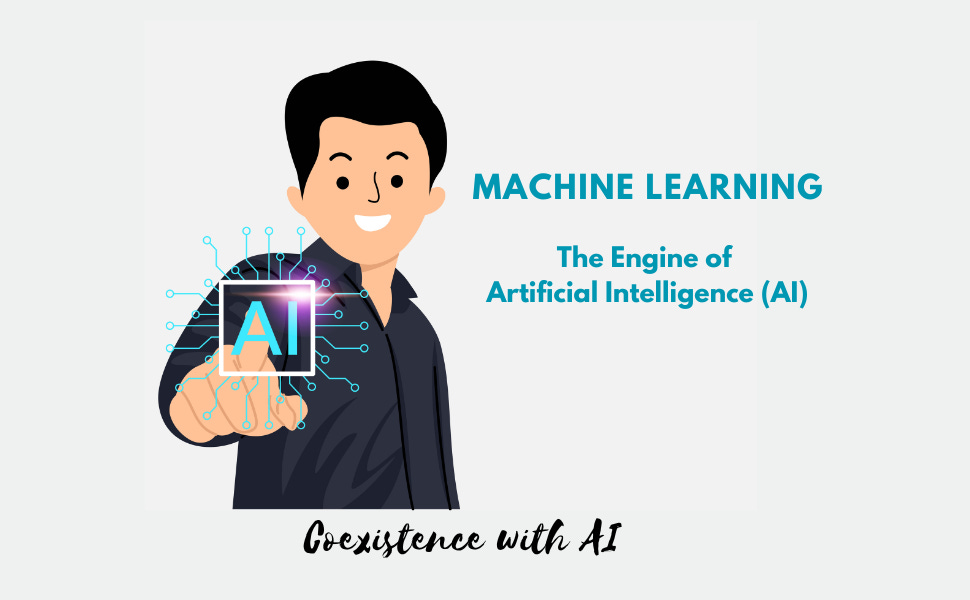Machine Learning
The Engine of Artificial Intelligence (AI)
Computers can learn from data, just as our brains learn from experiences. Machine Learning is comparable to Artificial Intelligence's brain. It allows machines to learn and become more proficient at tasks without requiring explicit programming. Instead of receiving a set of instructions, these machines are presented with massive amounts of data and encouraged to discover patterns, make predictions, and enhance their performance over time.
To put it simply, imagine you want the computer to recognize different types of fruits. Instead of providing specific rules for each fruit, you'd just show it countless images of fruits and tell it to learn to identify what each fruit looks like. The computer then employs mathematical algorithms to detect characteristics and distinct patterns specific to each type of fruit.
Because machine learning can perform tasks that traditional programming cannot, it is extremely powerful. It can be used to identify fraud, make product or movie recommendations, diagnose illnesses, and even operate self-driving cars. It increases AI's flexibility and capacity for long-term learning and development.
Financial Fraud Detection: Banks and credit card companies use machine learning to detect unusual patterns in transactions and flag potential fraud in real time.
Movie and Product Recommendations: Your experience gets more personalized through services like Netflix and Amazon, which use machine learning to examine your past purchases or viewing habits and recommend movies or other items based on your tastes.
Healthcare: Through the analysis of patient data, medical images, and clinical records, machine learning helps physicians diagnose diseases more precisely, which results in faster and more effective treatments.
Self-Driving Cars: In order to navigate and make safe and effective driving decisions, autonomous cars use machine learning to interpret data from sensors, cameras, and other sources.
Natural Language Processing: Voice assistants such as Siri and Alexa are powered by machine learning, which enables them to comprehend and react to your voice commands.
You don't need to be a programmer or a technical expert to benefit from Machine Learning. In fact, Machine Learning is becoming increasingly accessible to everyone, regardless of their technical background. Here's how:
AI-Powered Apps: Many applications and platforms, such as social media, streaming services, and smartphone apps, utilize Machine Learning to enhance your user experience. Every day, you come into contact with these AI-powered platforms, which range from voice-activated virtual assistants like Siri or Google Assistant to YouTube's personalized content recommendations.
Online Courses and Tutorials: If you're interested in learning more about Machine Learning, numerous free and user-friendly online courses and tutorials are available. Platforms like Coursera, edX, and Khan Academy offer introductory courses that break down the basics of Machine Learning into easily digestible lessons, making them accessible to anyone.
AI-Powered Tools: Certain software tools and platforms are designed to facilitate non-technical users to take advantage of machine learning's capabilities. These tools often come with user-friendly interfaces and guides, allowing individuals to build predictive models, analyze data, and automate tasks without writing a single line of code.
Industry-Specific Applications: In various industries, specialized applications of machine learning are being developed to assist professionals. For example, marketing professionals can use machine learning to optimize advertising campaigns, while farmers can benefit from AI-driven solutions to monitor crop health and yield.
In conclusion, the world of machine learning is not exclusive to programmers or data scientists. It's a technology that's rapidly becoming part of our everyday lives, and there are plenty of resources and tools available to help individuals from all backgrounds harness the power of machine learning for their benefit.


